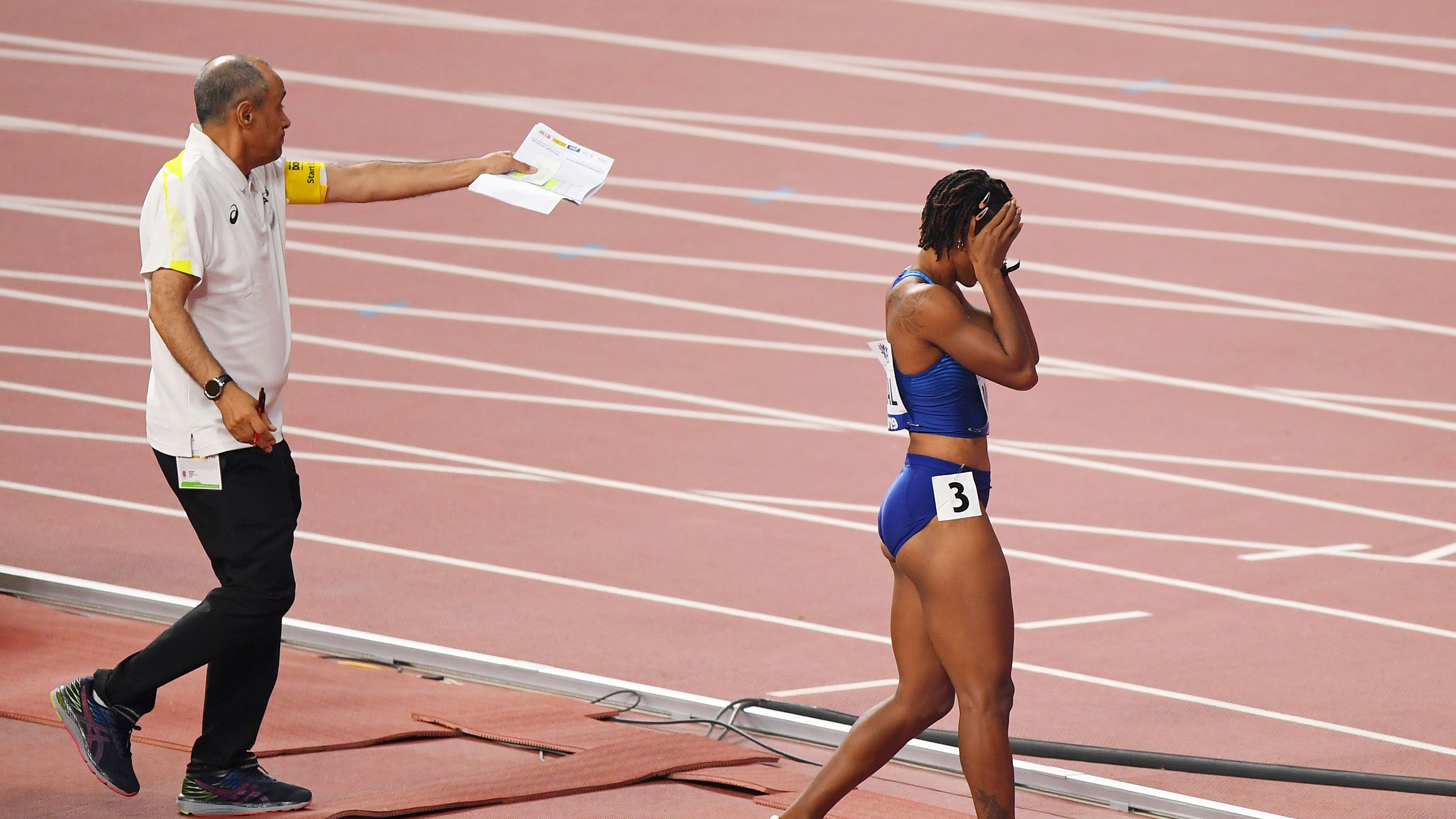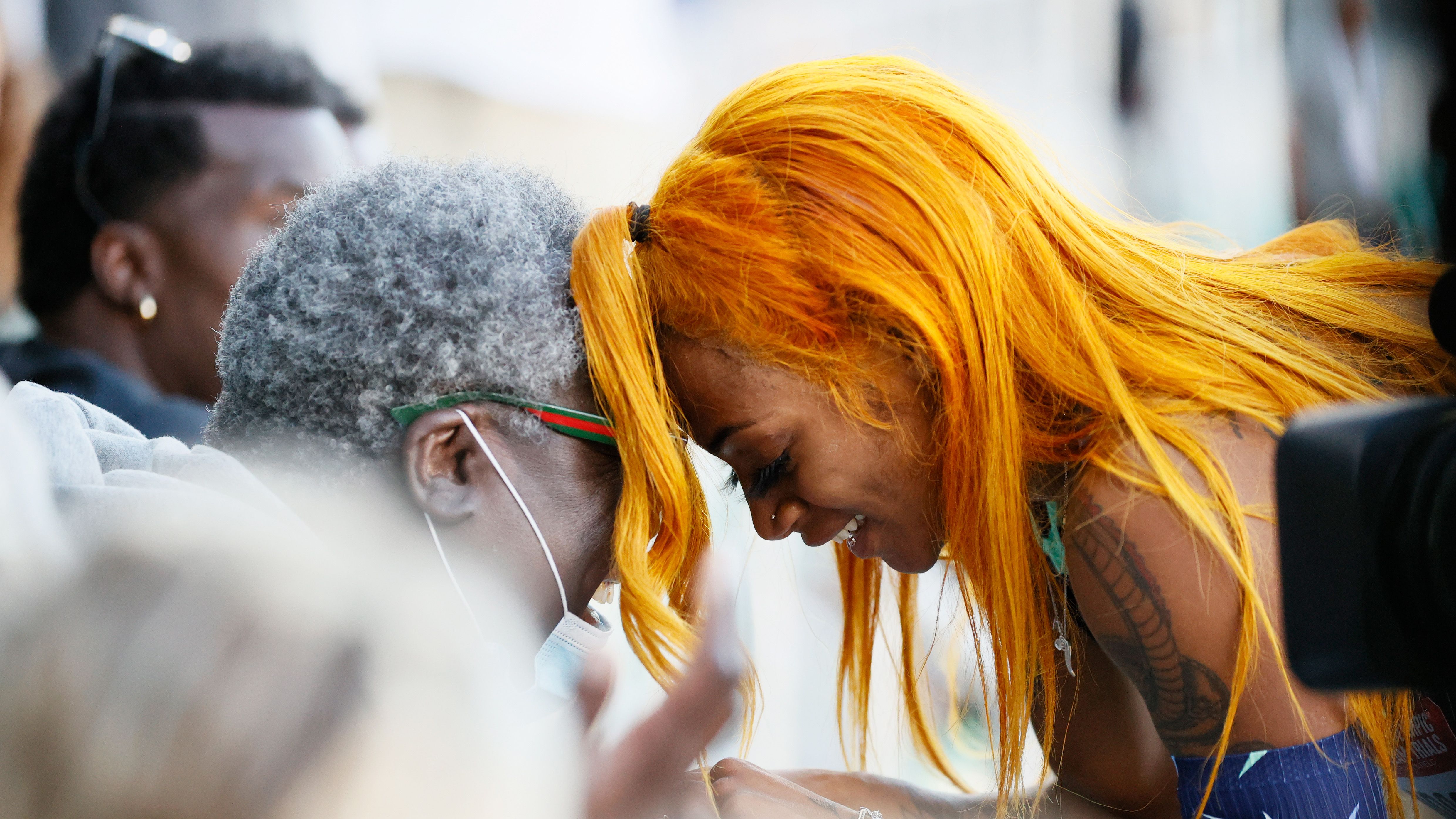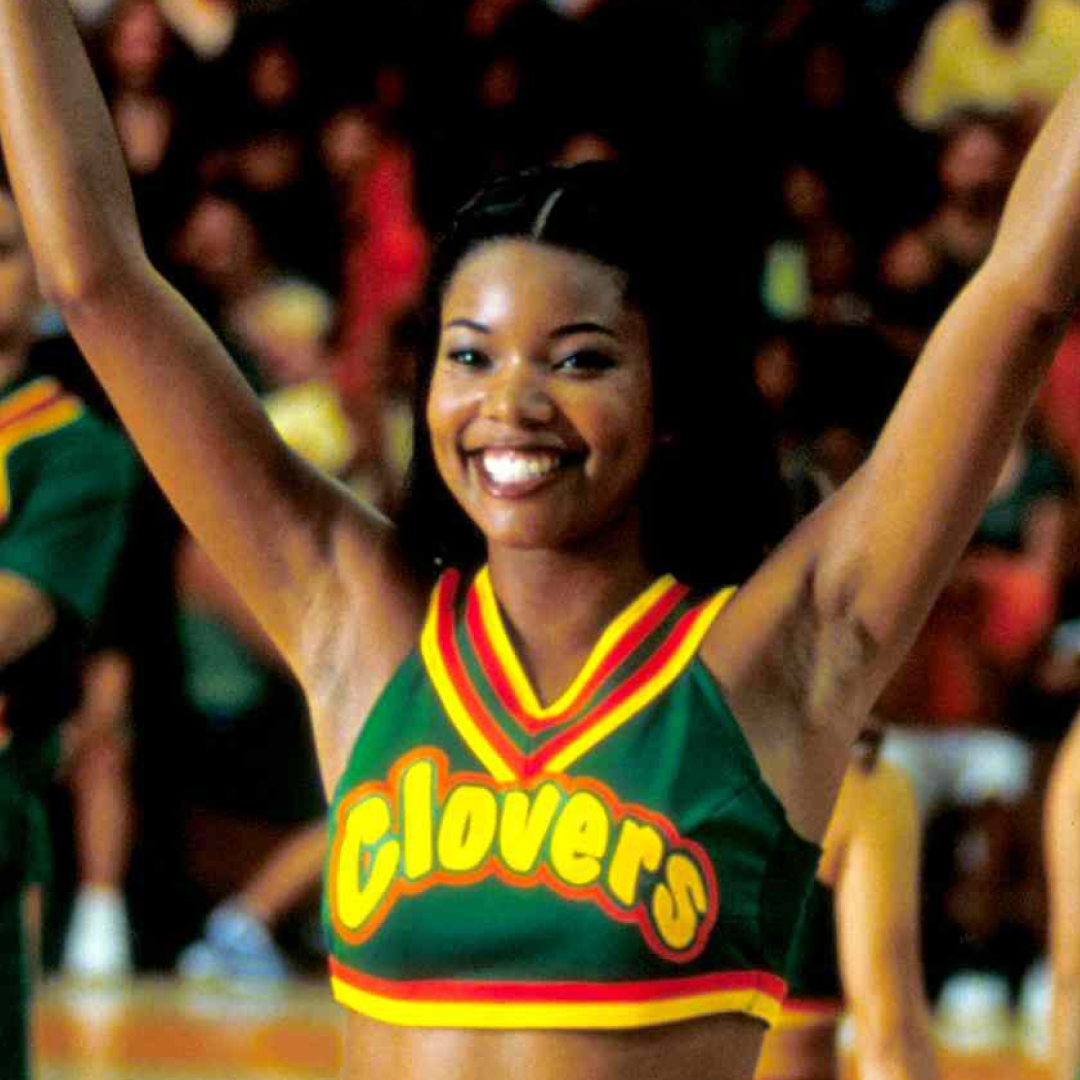Elite Track, Are You Okay?
Numerous women track and field athletes have been disqualified for breaking the rules. It might be time for some new rules.


In 2016, Brianna McNeal took Olympic gold in the 100-meter hurdles. This past month, she qualified for her second U.S. Olympic team. But before the Olympics were scheduled to happen last summer, she missed a mandatory drug test. After being pushed relentlessly to come forward with her excuse, she revealed the reason: She had been recovering from an abortion procedure she'd had two days earlier. Ultimately, she was suspended for five years for “tampering within the results management process.” (McNeal says she mistakenly changed the date of the procedure, by one day, on slips provided by her doctor.) Despite McNeal qualifying for the 2021 Tokyo Olympics, the Court of Arbitration for Sport announced they would uphold the ban. That means she’s disqualified from the Tokyo Olympics.
This past week, sprinting sensation Sha'Carri Richardson also made headlines—this time not for her blistering speed, but because she tested positive for marijuana. The World Anti-Doping Agency prohibits the use of cannabinoids, citing that it can be dangerous for the athlete to take; that it does not adhere to the “spirit of the sport”; and that it can be “performance enhancing” for some athletes. (Though more conclusive research is needed, a 2017 academic review found that THC does not improve aerobic performance.)
Also this week, two 18-year-old Namibian Olympic hopefuls, Christine Mboma and Beatrice Masilingi, were barred from racing the 400-meter dash at the Olympics because, as reported by the Namibia National Olympic Committee, their natural testosterone levels were deemed too high. This ruling is based on the World Athletics' policy on Athletes with Differences of Sex Development (DSD), which requires all women competitors’ testosterone levels to fall under a certain level if they are competing in certain events. This rule does not extend to male athletes. (South Africa's 800-meter runner Caster Semenya has faced similar scrutiny in the past, and she too will be barred from running her signature event in Tokyo.) The week before that, 400-meter hurdler CeCe Telfer, the first openly transgender woman to win an N.C.A.A. title, was deemed ineligible for competition in the 400-meter hurdle trials because her testosterone levels did not meet eligibility rules for the event. For men competing, higher-than-average, naturally occurring testosterone is a competitive advantage. For women? It threatens their professional career.
Each of these athletes faced unique challenges. Each situation requires a different solution. This is far from the first time a woman athlete has been barred from competition, and the reasons have varied wildly. (Hell, American record-holder Shelby Houlihan was banned from the 2021 Olympics after testing positive for the anabolic steroid nandrolone, which she claims she accidentally ingested by eating a pork burrito.) But if this new wave of disqualifications tells us anything, it’s that some of the sport’s current guidelines acutely and unfairly impact women, specifically women of color and athletes who may not fit into the World Athletics' arbitrary definition of gender.

Sha’Carri Richardson embraces her grandmother after winning her signature event, the 100 meter, at the U.S. Olympic Trials.
Track and field desperately needs to put the work into new research, into consulting with experts, into hearing feedback from athletes and ultimately, into writing new guidelines. This work is hard and complicated; these conversations can be challenging. In some ways, it’s uncharted territory. But that doesn't make it unworthy or unnecessary. Many of the current rulings are drafted under the guise of enforcing fairness. But there are ways to promote fairness in sports without trampling on an athlete’s right to be treated fairly, too.
It’s time to reevaluate what drugs really and scientifically belong on a banned substance list. It’s time to make this sport accessible for and truly inclusive of all people, including those who, according to some, don't fit prescribed gender norms. It’s time to trash performative allyship and provide support to athletes who are pregnant or are trying to get pregnant, who are moms, who are breastfeeding, who have had abortions, or who are seeking reproductive care. It’s time to make the mental health of all runners a top priority. It’s time for a reckoning.
Track and field is far from the only sport that needs to reevaluate the rules. (Looking at you, FINA, the international governing body of swimming, who banned swim caps designed specifically for Black women.) But it’s a good place to start. It's not going to be easy, and it will require time, energy, and resources, but a critical evaluation and rethink of current policies will benefit the future of the sport and its athletes. As we celebrate the incredible and deserving medal-contenders who will race on that Olympic track in Tokyo, let’s not forget those who didn’t get the chance to step on the starting line. Let’s not forget to build a better future for them and those running up behind them.
Stay In The Know
Get exclusive access to fashion and beauty trends, hot-off-the-press celebrity news, and more.
Megan DiTrolio is the editor of features and special projects at Marie Claire, where she oversees all career coverage and writes and edits stories on women’s issues, politics, cultural trends, and more. In addition to editing feature stories, she programs Marie Claire’s annual Power Trip conference and Marie Claire’s Getting Down To Business Instagram Live franchise.
-
 Adria Arjona Smells Irresistibly Delicious Courtesy of This $48 Hair Oil
Adria Arjona Smells Irresistibly Delicious Courtesy of This $48 Hair OilPlus the makeup routine that helps her feel "like a rebel."
By Ariel Baker Published
-
 Princess Anne's Unexpected Suggestion About Mike Tindall's Nose
Princess Anne's Unexpected Suggestion About Mike Tindall's Nose"Princess Anne asked me if I'd have the surgery."
By Amy Mackelden Published
-
 Queen Elizabeth's "Disapproving" Royal Wedding Comment
Queen Elizabeth's "Disapproving" Royal Wedding CommentShe reportedly had lots of nice things to say, too.
By Amy Mackelden Published
-
 Meet Jeanie Buss, the Real-Life Basketball Boss Who Inspired Netflix's 'Running Point'
Meet Jeanie Buss, the Real-Life Basketball Boss Who Inspired Netflix's 'Running Point'Her life and career bear a lot of resemblance to Kate Hudson's character Isla Gordon.
By Quinci LeGardye Published
-
 Meet the Cast of 'Running Point'
Meet the Cast of 'Running Point'Kate Hudson, Brenda Song, and more lead Mindy Kaling's new sports comedy.
By Quinci LeGardye Published
-
 After Setting Many Historic Firsts in Basketball, Natalie Nakase Wants to Open As Many Doors As She Can
After Setting Many Historic Firsts in Basketball, Natalie Nakase Wants to Open As Many Doors As She CanThe Golden State Valkyries coach speaks to editor-in-chief Nikki Ogunnaike for the 'Marie Claire' podcast "Nice Talk."
By Sadie Bell Published
-
 The 32 Best Sports Movies Ever
The 32 Best Sports Movies EverThese hit a home run.
By Katherine J. Igoe Published
-
 A’ja Wilson Says the "Biggest Thing" in Addressing the Gender Pay Gap Is Finding Allies to Invest in the WNBA
A’ja Wilson Says the "Biggest Thing" in Addressing the Gender Pay Gap Is Finding Allies to Invest in the WNBAThe WNBA star and author spoke to editor-in-chief Nikki Ogunnaike for 'Marie Claire' podcast "Nice Talk."
By Sadie Bell Published
-
 Where Are the Stars of Netflix's 'America's Sweethearts: The Dallas Cowboy Cheerleaders' Now?
Where Are the Stars of Netflix's 'America's Sweethearts: The Dallas Cowboy Cheerleaders' Now?Most importantly, here's who returned to this season's training camp.
By Quinci LeGardye Published
-
 Cleopatra Coleman Plays the Fascinating Center of a Tabloid Scandal in 'Clipped'
Cleopatra Coleman Plays the Fascinating Center of a Tabloid Scandal in 'Clipped'The Australian actress discusses finding humanity in her depiction of V. Stiviano in the new FX series about the Donald Sterling scandal.
By Quinci LeGardye Published
-
 Flag Football Star Diana Flores on the Collective Power of Women's Sports
Flag Football Star Diana Flores on the Collective Power of Women's Sports"I bet if you see a female athlete succeed, you're going to cheer with her."
By Halie LeSavage Published